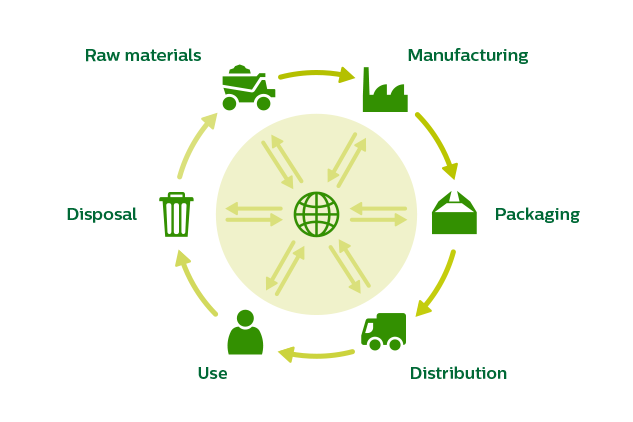
LCA – Life Cycle Assessment
We are humans, and Life is something that sounds very clear to us. We are being born, we are living on the planet, and at some time and space point, unfortunately, we die. The same happens to animals and other living organisms. Whenever we talk about something else, which is not a living creature, we hardly think of Life as its property. Or not?
Everything that exists in our materialistic everyday life has a certain period of time which is normally called Life Cycle. And according to the analogy of a human life, it starts from the cradle and finishes at the grave. This is the main definition of such an analytical tool as Life Cycle Assessment LCA that we are going to talk about.
At the first sight, it looks like to be clear. And after some time, you may ask, why we should care about Life Cycle of whatever it is and, moreover, assess it?!
Fortunately, we have an answer. Everything that surrounds us has an impact on the environment. All the things we produce they start their way in many cases from mining: irons, oils other different raw ores and sources we dig out from the Earth. Then these raw resources have to be refined, and, finally, various types of products are being produced.
It looks to be simple. However, inside these procedures are hidden different little and sometimes tiny but significant processes and actions such as energy or chemicals production and consumption, or transportation and their trade-off during all stages of anything – a table spoon that we use to eat soup, for example! The procedure of LCA let us imagine how much effort we have to spend to get any ordinary thing that we commonly use on everyday life base.
Afterall, there are a lot of LCA software types. Each LCA software has a huge database of little processes and actions that allow us step by step to produce above mentioned table spoon. This should be done according to the inventory list of all possible stages needed for this good to be produced and utilized when we talk not only about the starting point, but also about the final step of any single thing life – its disposal. Then, we combine the total impact on the environment in terms of the whole influence on the nature from the list of procedure from the beginning to the end – showing a “cradle and grave” approach. Simultaneously, we can also define the environmental impact of any good specifically – depending on a type of environmental sphere – it can be Climate Change and Ozone Depletion, Fossil Depletion and Terrestrial Acidification and so on.
 Having this possibility give us an advantage to choose, for instance, between iron or stainless steel table spoon based on sustainable and eco-friendly approach. At the same time, LCA tool gives a hand when improving quality of a product and making it more environmentally friendly – as it is possible to compare the environmental impact of alternative processes or materials used for the same spoon production. In the end of the end, application of LCA let us think on re-cycling and re-using the goods that have already reached their final step of life, as most usually, it is less aggressive to the environment to re-use the thing somehow again rather than to use new material and sources for its full life cycle. It is known that mining and refining most often are the most dangerous aspects of new goods’ production in context of nature protection.
Having this possibility give us an advantage to choose, for instance, between iron or stainless steel table spoon based on sustainable and eco-friendly approach. At the same time, LCA tool gives a hand when improving quality of a product and making it more environmentally friendly – as it is possible to compare the environmental impact of alternative processes or materials used for the same spoon production. In the end of the end, application of LCA let us think on re-cycling and re-using the goods that have already reached their final step of life, as most usually, it is less aggressive to the environment to re-use the thing somehow again rather than to use new material and sources for its full life cycle. It is known that mining and refining most often are the most dangerous aspects of new goods’ production in context of nature protection.
Thus, this analytical tool provides us with different options how to make the surrounding world better and produce safely with regard to the environment.
In our “anaerobic” group at Faculty of Environmental Technology, UCT Prague, we develop technologies that help to treat different types of wastewater and sewage sludge up to the quality defined by law and make it as cheap as possible. Additionally, nowadays when building a new wastewater treatment plant, or rehabilitating an old one, using LCA, we can also implement not only the most effective technologies, but also the most safe ones in terms of environment protection.
Thus, in the frames of the investigation, we managed to identify the type of sewage sludge handling technology that would allow us to reduce the environmental burden of the whole process of wastewater treatment. Among other processes temperature-phased anaerobic digestion demonstrated the best combination of already well-known and commonly spread worldwide anaerobic process of sewage sludge management.
Author is doctoral student at Department of Water Technology and Environmental Engineering







